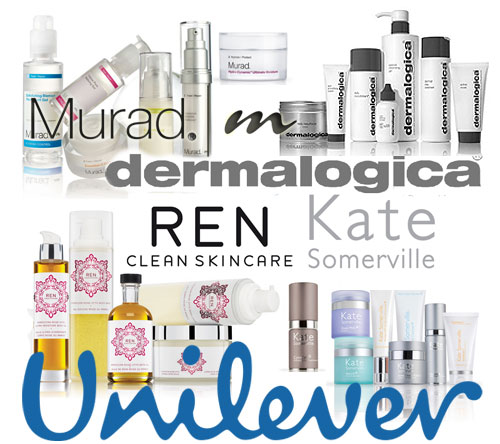In 2015, the trend towards acquiring successful up-and-coming, innovative brands continues. Some of the most notable headlines in the beauty industry in recent months are about who is being acquired by whom. More importantly, these acquisitions feature a new generation of competition for the leading companies—indie brands. As noted by Carlotta Jacobson, President of CEW, at a recent CEW Newsmaker Forum, “These brands are the new newsmakers.” Many leading companies, like Unilever, are taking notice.
In the first six months of 2015, Unilever tops off its portfolio with a superfecta of acquisitions, in one of the largest and fastest growing areas in the industry: skin care. Cumulatively, these indie brands give the multinational giant a leg up into the prestige skin care business. In March 2015, the marketer acquires REN, a move seen as an attempt to foray into the prestige skin care market. Kate Somerville Skincare is acquired in May, helping to build Unilever’s prestige products portfolio both in the United States and abroad. The marketer continues its strategic expansion by acquiring global professional skin care Dermalogica. In early July, Unilever announces its intention to purchase Murad, its second professional brand acquisition. These acquisitions will allow Unilever to make a dent in channels such as prestige, specialty, and professional, which until now were not the firm’s forte. This is not Unilever’s first journey into the prestige beauty business. In 2000, the firm sold its prestige fragrance business, including Calvin Klein fragrances, and in 2005 the company divested Elizabeth Arden. One thing is clear—Unilever wants to create a prestige skin care business and plans to do it through acquisition.
While the trend of acquiring independent brands is not new to the beauty industry, indies have become highly desirable targets for M&A activity by leading beauty companies because of their digital savvy, innovation, and problem-oriented offerings that resonate well with today’s consumer demands. Indie brands have become attractive targets for private equity firms as of late who have recently invested in makeup brands, such as IT Cosmetics, ELF, and Too Faced.
A few notable indie brands driving sales in 2014 and featured in Kline’s latest edition of its Cosmetics & Toiletries USA annual service include Josie Maran—with sales up about 15% in 2014 and named Women’s Wear Daily’s 2014 Indie of the Year—and brands such as hello and EOS.

